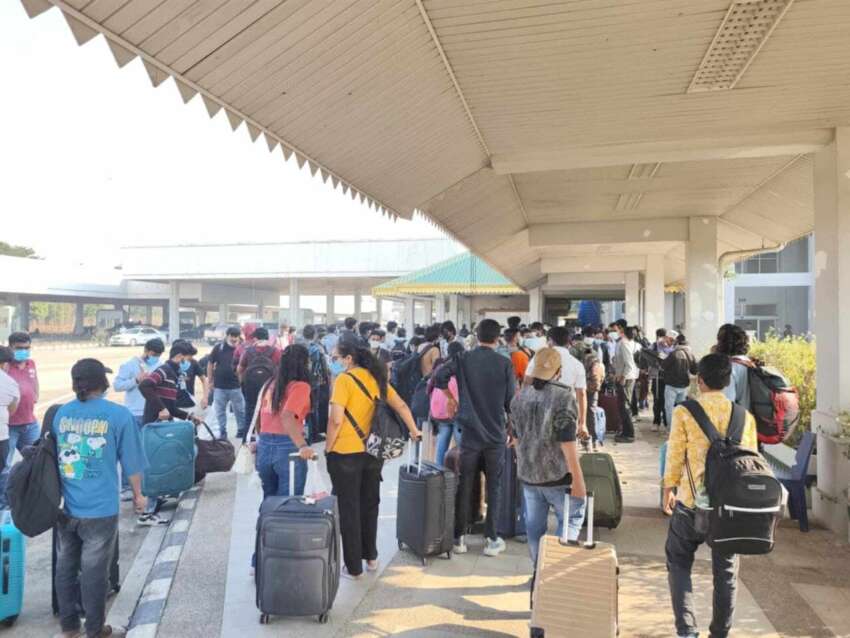
Twelve foreign women who were rescued from Chinese-run scam centers in Myawaddy Township, Karen State, have been found to be pregnant following sexual assaults during their captivity. According to information released by the Civil Society Network for Assisting Human Trafficking Victims (CSNAHTV), these women are currently seeking medical treatment in Thailand. The situation has highlighted the severe human rights violations occurring within these criminal operations along the Myanmar-Thailand border.
Reports indicate that approximately 320 women, predominantly Ethiopian nationals, were trafficked and held captive in various scam centers throughout Myawaddy Township. During their confinement, these women were subjected to sexual assault, resulting in twelve pregnancies. Tragically, one of the women suffered a miscarriage on March 19. The incident has brought attention to the brutal nature of human trafficking operations in the region, where victims face multiple forms of abuse and exploitation.
The release of these trafficking victims came about following pressure from China on the Border Guard Force (BGF) and the Democratic Karen Benevolent Army (DKBA), who subsequently retrieved the victims from the scam centers. However, the pregnant women now require urgent medical attention and care. CSNAHTV coordinator Jay Krittaya has appealed to Thai authorities and the National Human Rights Commission of Thailand for humanitarian assistance and support for these victims.
The National Human Rights Commission of Thailand has escalated the matter to the Thai Ministry of Foreign Affairs, urging coordination with relevant embassies and consulates to assist the victims. Additionally, they have called upon the Thai National Security Council and the Ministries of Interior and Defense to provide emergency medical treatment and care for the pregnant trafficking victims. This situation underscores the ongoing crisis of human trafficking in Myanmar, which has been exacerbated by the breakdown of law and order in the country. The case highlights the urgent need for international cooperation to address human trafficking networks operating in the border regions and to provide support for their victims.



